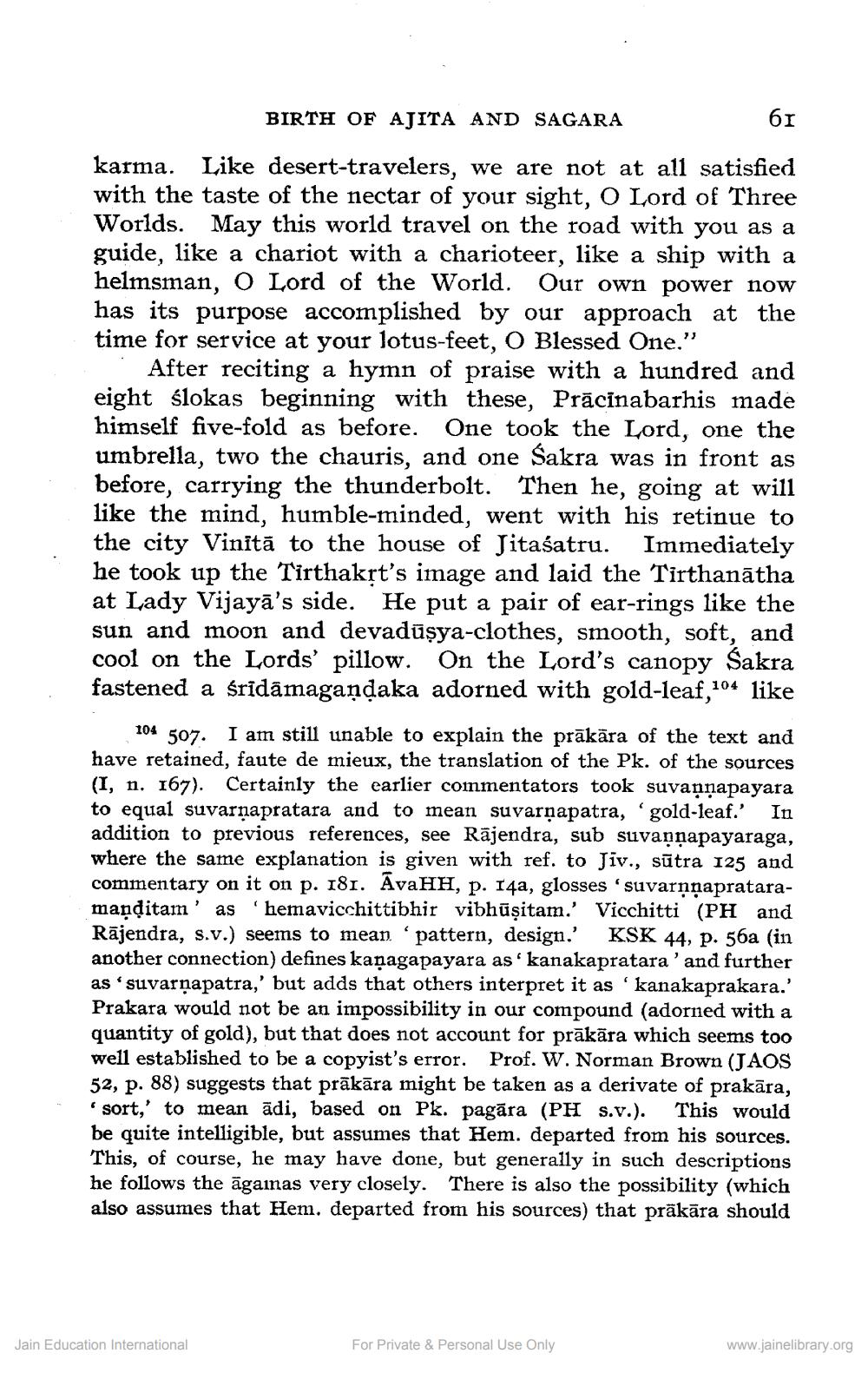________________
BIRTH OF AJITA AND SAGARA
61
karma. Like desert-travelers, we are not at all satisfied with the taste of the nectar of your sight, O Lord of Three Worlds. May this world travel on the road with you as a guide, like a chariot with a charioteer, like a ship with a helmsman, O Lord of the World. Our own power now has its purpose accomplished by our approach at the time for service at your lotus-feet, O Blessed One."
After reciting a hymn of praise with a hundred and eight ślokas beginning with these, Prācīnabarhis made himself five-fold as before. One took the Lord, one the umbrella, two the chauris, and one Sakra was in front as before, carrying the thunderbolt. Then he, going at will like the mind, humble-minded, went with his retinue to the city Vinitā to the house of Jitaśatru. Immediately he took up the Tirthakrt's image and laid the Tirthanātha at Lady Vijayā's side. He put a pair of ear-rings like the sun and moon and devadūşya-clothes, smooth, soft, and cool on the Lords' pillow. On the Lord's canopy Sakra fastened a śrīdāmagandaka adorned with gold-leaf,104 like
104 507. I am still unable to explain the prākāra of the text and have retained, faute de mieux, the translation of the Pk. of the sources (I, n. 167). Certainly the earlier commentators took suvannapayara to equal suvarnapratara and to mean suvarṇapatra, 'gold-leaf. In addition to previous references, see Rājendra, sub suvapņapayaraga, where the same explanation is given with ref. to Jiv., sūtra 125 and commentary on it on p. 181. Ava HH, p. 14a, glosses 'suvarnnaprataramanditam' as 'hemavicchittibhir vibhūşitam.' Vicchitti (PH and Rājendra, s.v.) seems to mean pattern, design. KSK 44, p. 56a (in another connection) defines kaņagapayara as' kanakapratara' and further as 'suvarṇapatra,' but adds that others interpret it as 'kanakaprakara.' Prakara would not be an impossibility in our compound (adorned with a quantity of gold), but that does not account for prākāra which seems too well established to be a copyist's error. Prof. W. Norman Brown (JAOS 52, p. 88) suggests that prākāra might be taken as a derivate of prakāra, 'sort,' to mean ādi, based on Pk. pagāra (PH s.v.). This would be quite intelligible, but assumes that Hem. departed from his sources. This, of course, he may have done, but generally in such descriptions he follows the āgainas very closely. There is also the possibility (which also assumes that Hem, departed from his sources) that präkāra should
Jain Education International
For Private & Personal Use Only
www.jainelibrary.org




